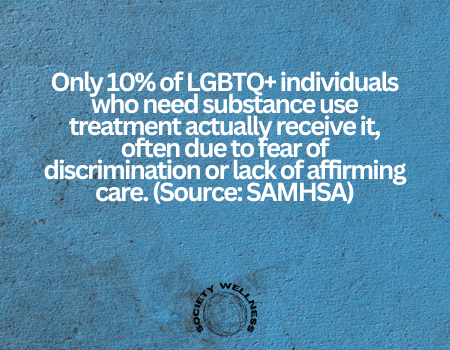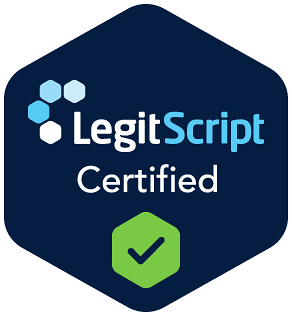Recovery is a journey that involves not only the individual struggling with addiction but also their loved ones. Alcoholics Anonymous (AA) and Al-Anon are two globally recognized programs that provide support to those affected by substance use disorders. While both programs are rooted in the 12-step philosophy and emphasize mutual support, they serve distinct purposes: AA focuses on helping individuals overcome addiction, while Al-Anon supports family and friends affected by a loved one’s substance use.
For LGBTQ+ individuals, these programs can be especially beneficial when integrated into affirming, identity-centered treatment settings. LGBTQ-centered care addresses the unique challenges LGBTQ+ individuals face, such as discrimination, minority stress, and family rejection, creating a holistic recovery experience. At LGBTQ Addiction Centers, we incorporate AA and Al-Anon principles into our specialized programs, such as LGBTQ Partial Hospitalization Treatment and LGBTQ Substance Abuse Treatment, ensuring inclusive and culturally competent care.
What is Alcoholics Anonymous (AA)?
Purpose and Goals
Alcoholics Anonymous (AA) is a fellowship designed to help individuals recover from alcohol addiction. Founded in 1935, AA uses a 12-step framework to guide members toward sobriety and personal growth through self-reflection, accountability, and mutual support.
Core Features of AA:
- Peer Support:
- AA meetings are led by peers who have firsthand experience with addiction and recovery.
- Participants share experiences, challenges, and successes in a supportive environment.
- 12-Step Program:
- Steps include admitting powerlessness over alcohol, taking a moral inventory, making amends, and helping others in recovery.
- Spiritual growth is encouraged, though the program is not tied to any specific religion.
- Anonymity:
- Protects the confidentiality of participants, creating a safe space for open dialogue.
Benefits of AA for LGBTQ+ Individuals
- Safe Spaces: Many AA groups offer LGBTQ-specific meetings that address identity-related challenges and foster a sense of community.
- Accountability: The program encourages personal responsibility and provides a structured path to sobriety.
- Peer Connection: Participants can connect with others who understand the unique pressures of addiction and identity.
What is Al-Anon?
Purpose and Goals
Al-Anon is a support group for family members and friends affected by someone else’s addiction. Established in 1951, the program helps participants focus on their own emotional health and well-being rather than trying to control or fix their loved one’s addiction.
Core Features of Al-Anon:
- Support for Loved Ones:
- Al-Anon provides tools for coping with the challenges of supporting someone with addiction.
- The program helps participants set boundaries and prioritize self-care.
- 12-Step Program:
- Adapted from AA, the steps encourage personal growth, emotional detachment, and acceptance.
- Community:
- Meetings offer a supportive environment where participants share experiences and learn from others in similar situations.
Benefits of Al-Anon for LGBTQ+ Families
- Understanding and Compassion: Al-Anon helps families of LGBTQ+ individuals understand addiction and its impact.
- Coping Strategies: The program provides tools for managing stress and maintaining healthy relationships.
- Supportive Networks: LGBTQ-specific Al-Anon groups foster inclusivity and acceptance, addressing the unique dynamics of LGBTQ+ families.
Differences Between AA and Al-Anon
While both programs share a foundation in the 12-step philosophy, their focus and audiences are distinct:
| Aspect | AA | Al-Anon |
|---|---|---|
| Primary Audience | Individuals struggling with addiction | Friends and family of individuals with addiction |
| Focus | Recovery from substance use | Coping with the impact of a loved one’s addiction |
| Goal | Achieving and maintaining sobriety | Emotional healing and self-care |
| Format | Peer-led meetings for addicts | Peer-led meetings for loved ones |
Unique Challenges Faced by LGBTQ+ Individuals in Recovery
For LGBTQ+ individuals, addiction and its impact on relationships often intersect with identity-specific challenges. These include:
- Discrimination and Stigma:
- LGBTQ+ individuals often face societal bias, leading to higher rates of anxiety, depression, and substance use.
- Minority Stress:
- The chronic stress of being part of a marginalized group can exacerbate addiction and its emotional toll.
- Family Rejection:
- Rejection by family members due to sexual orientation or gender identity can intensify feelings of isolation, contributing to addiction or complicating recovery.
- Co-Occurring Conditions:
- LGBTQ+ individuals are more likely to experience co-occurring mental health issues, such as PTSD, depression, or anxiety, which can impact relationships and recovery.

How AA and Al-Anon Support the LGBTQ+ Community
1. Addressing Identity-Specific Challenges
- LGBTQ-specific AA and Al-Anon groups provide affirming spaces to discuss the unique challenges of addiction and relationships within the LGBTQ+ community.
- These groups help participants build resilience against discrimination and internalized stigma.
2. Building Community and Connection
- Both programs foster a sense of belonging and mutual support, which can be particularly beneficial for LGBTQ+ individuals who feel isolated in traditional settings.
- Peer support helps participants navigate shared challenges and celebrate progress.
3. Empowering Families and Allies
- Al-Anon helps families of LGBTQ+ individuals understand addiction and develop healthier communication and boundaries.
- It also offers guidance on how to support a loved one’s recovery without enabling harmful behaviors.
4. Encouraging Holistic Healing
- Both programs emphasize emotional, spiritual, and relational healing, which aligns with the holistic approach of LGBTQ Addiction Centers.
Integrating AA and Al-Anon into LGBTQ-Centered Treatment Programs
At LGBTQ Addiction Centers, we integrate AA and Al-Anon principles into our comprehensive treatment plans, providing tailored support for individuals and their families.
Key Programs Offered:
- LGBTQ Partial Hospitalization Treatment (PHP):
- Combines structured therapy with 12-step principles for individuals requiring intensive care.
- LGBTQ Intensive Outpatient Program (IOP):
- Offers flexibility for individuals to attend therapy and AA meetings while managing other responsibilities.
- LGBTQ Outpatient Treatment Program (OP):
- Long-term support for individuals maintaining sobriety and reintegrating into daily life.
- LGBTQ Substance Abuse Treatment:
- Addresses addiction to alcohol, benzodiazepines, heroin, meth, cocaine, and other substances.
- Family Therapy and Support:
- Helps families navigate the complexities of addiction and recovery within the LGBTQ+ context.
Conclusion
Alcoholics Anonymous (AA) and Al-Anon are invaluable resources for individuals struggling with addiction and their loved ones. For LGBTQ+ individuals, integrating these programs into affirming, LGBTQ-centered care creates a powerful foundation for recovery and healing.
At LGBTQ Addiction Centers, we are dedicated to providing inclusive, compassionate care that addresses both addiction and the unique challenges faced by LGBTQ+ individuals. Through programs like LGBTQ Partial Hospitalization Treatment and LGBTQ Mental Health Programs, we empower individuals and families to build healthier, more fulfilling lives.
If you or a loved one needs support, contact us today at (888)964-8116 to learn more about our services and start your journey toward recovery. Together, we can help you achieve lasting healing and connection.
FAQ on AA vs. Al-Anon
What is Alcoholics Anonymous (AA)?
Alcoholics Anonymous (AA) is a peer-led support group for individuals recovering from alcohol addiction. It uses a 12-step program to promote sobriety and personal growth.
What is Al-Anon?
Al-Anon is a support group for friends and family members of individuals struggling with addiction. It focuses on self-care, emotional healing, and setting healthy boundaries.
What are the key differences between AA and Al-Anon?
AA supports individuals with addiction, while Al-Anon helps loved ones cope with the emotional impact of a loved one’s substance use. Both follow the 12-step philosophy but serve distinct audiences.
Are there LGBTQ-specific AA or Al-Anon meetings?
Yes, many communities offer LGBTQ-specific AA and Al-Anon groups, providing affirming environments that address identity-specific challenges.
How can AA help LGBTQ+ individuals in recovery?
AA provides a supportive space for LGBTQ+ individuals to connect with peers, navigate identity-related challenges, and build accountability in their recovery journey.
How can Al-Anon support LGBTQ+ families and allies?
Al-Anon helps LGBTQ+ families and allies understand addiction, set boundaries, and develop healthy ways to support their loved one’s recovery without enabling harmful behaviors.
How are AA and Al-Anon integrated into LGBTQ-centered treatment programs?
Programs like LGBTQ Partial Hospitalization Treatment and LGBTQ Intensive Outpatient Programs incorporate AA and Al-Anon principles to complement therapy and provide holistic support.
How can I access LGBTQ-centered AA or Al-Anon meetings?
Contact LGBTQ Addiction Centers for guidance on finding LGBTQ-specific meetings or integrating these programs into your treatment plan.

